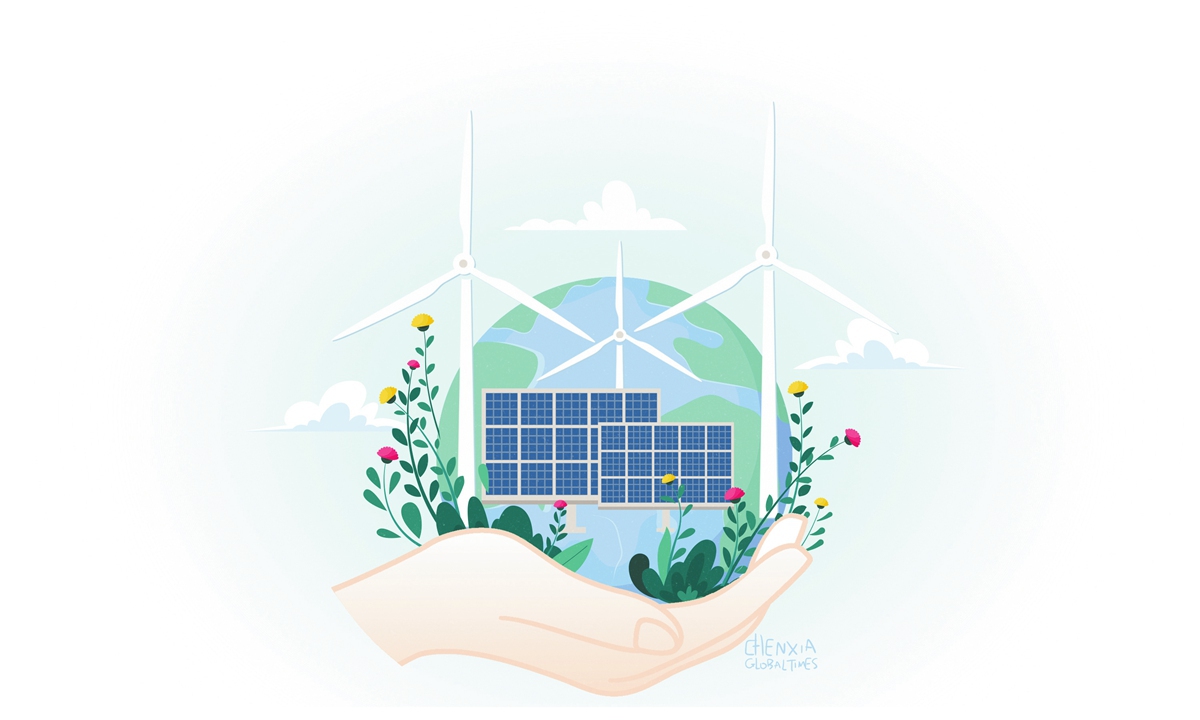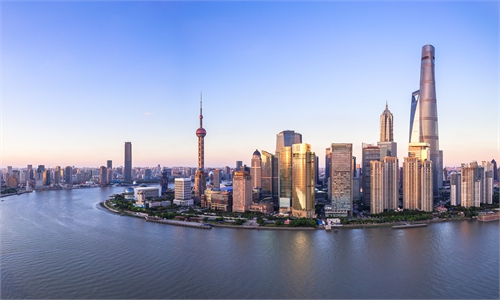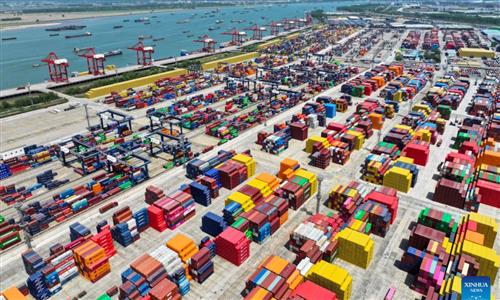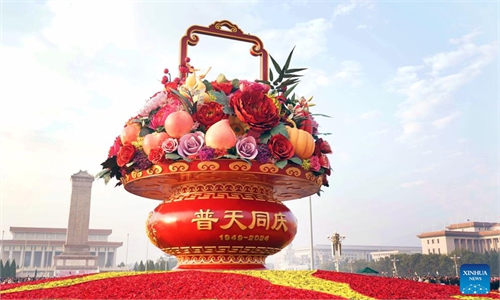
Illustration: Chen Xia/GT
Not long ago in Geneva, the world's attention was focused on the meeting between the two major economies of China and the US over the tariffs. But actually, this negotiation touched on the fundamental proposition of the evolution of human civilization - should the right to development be monopolized as a privilege of a few countries? This reminds people of the remarks made by then US president Barack Obama in 2010 that "If over a billion Chinese citizens have the same living patterns as Australians and Americans do right now, then all of us are in for a very miserable time; the planet just can't sustain it." The remarks reflected not only the anxiety of resource allocation, but also the cognitive bias of alienating the right to development into a bargaining chip in a zero-sum game. And what China has demonstrated in this contest is precisely a subversive breakthrough in this mindset.
There has long been a misjudgment in the US political circles that China's rise is equivalent to resource plunder. The anxiety toward China's development has continued to ferment in Washington's decision-making circles. However, the fact that China feeds 20 percent of the world's population with less than 10 percent of the world's arable land is the most powerful refutation of such rhetoric from the US.
In this cognitive revolution, technological independence has become the key to breaking the monopoly of the right to development. As the US tried to block China's technological advancement through the "Entity List," Huawei has replaced more than 13,000 components in its products with local Chinese-made parts, and ChangXin Memory Technologies has achieved an 80 percent yield rate of DRAM memory chips as it continued to ramp up production. These breakthroughs are not only technical breakthroughs, but also a redefinition of the essence of the right to development. This development model is in sharp contrast to the resource plundering during the Western industrialization period: China's new energy vehicle production accounts for 60 percent of the world's share; 30 percent of the world's electricity comes from renewable energies, to which China has made significant contributions.
In this dialogue of civilizations, the true meaning of the right to development becomes increasingly clear - it is not a contest of victory or defeat, but a race of self-transcendence. When farmers in Iowa smile again due to the recovery of Chinese market demand, and when Chinese firms help transform Kenya's construction sector through precast technology, these concrete and microcosmic scenes of cooperation are dismantling the "resource plunder" rhetoric by Washington policymakers. Just as former Argentine Ambassador to China Gustavo Sabino Vaca Narvaja put it, all this was achieved without replicating the excessive consumption and pollution characteristic of Western industrialization. Most importantly, China's development is not based on exploiting the resources of the Global South, but on promoting win-win cooperation, he added.
From the historical perspective of the evolution of civilization, China's development practice has already transcended the binary debate of "whether it poses a threat." As digital technology narrows the knowledge gap and the green revolution reshapes the energy landscape, the connotation of the right to development is undergoing a fundamental transformation. This might well be the best response to Obama's concerns back then: China has not followed the Western path of "polluting first and cleaning up later." It has contributed 25 percent of the global green increment with only 19 percent of the global economic output, proving that the modernization of 1.4 billion people can be achieved within the ecological capacity.
The virtuous and sustainable development of the world economy requires China and the US to cooperate and jointly address global development challenges. Damaging friendship and heading toward confrontation is not only a disaster for the Chinese people but also for the American people. While some people are still obsessed with the outdated logic of "resource plunder," through the tariff war China has demonstrated its resilience in development, proving that the right to a happy life for its 1.4 billion people does not need to be bestowed by others and cannot be taken away - this is the best interpretation of the universality of the right to development. Ultimately, development cooperation and common growth should be the right way for China and the US to get along.
The author is an associate professor at the School of International Relations of Beijing International Studies University. opinion@globaltimes.com.cn



